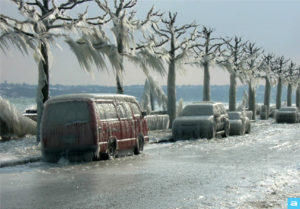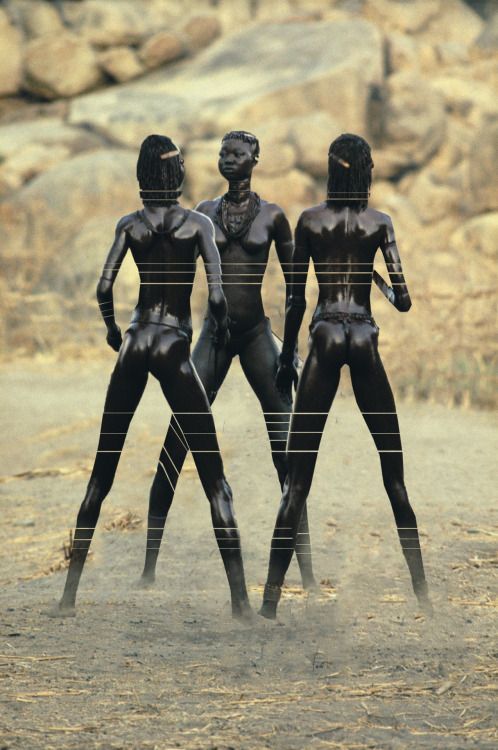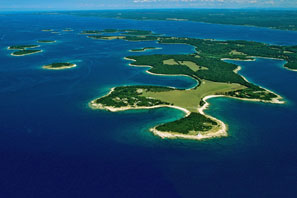
Crichton was right. Also wrong. Annexing the others won’t work. Always more islands. & storms.
Somebody posted a lecture Michael Crichton gave at CalTech. He was a truly brilliant man. He annihilated the notion that there’s anything compatible between science and consensus. But his opening remarks gave rise to a serious disagreement I have with him. From the speech:
“I was born in the midst of World War II, and passed my formative years at the height of the Cold War. In school drills, I dutifully crawled under my desk in preparation for a nuclear attack. It was a time of widespread fear and uncertainty, but even as a child I believed that science represented the best and greatest hope for mankind. Even to a child, the contrast was clear between the world of politics—a world of hate and danger, of irrational beliefs and fears, of mass manipulation and disgraceful blots on human history. In contrast, science held different values— international in scope, forging friendships and working relationships across national boundaries and political systems, encouraging a dispassionate habit of thought, and ultimately leading to fresh knowledge and technology that would benefit all mankind. The world might not be a very good place, but science would make it better. And it did. In my lifetime, science has largely fulfilled its promise. Science has been the great intellectual adventure of our age, and a great hope for our troubled and restless world. But I did not expect science merely to extend lifespan, feed the hungry, cure disease, and shrink the world with jets and cell phones. I also expected science to banish the evils of human thought—prejudice and superstition, irrational beliefs and false fears. I expected science to be, in Carl Sagan’s memorable phrase, “a candle in a demon haunted world.” And here, I am not so pleased with the impact of science. Rather than serving as a cleansing force, science has in some instances been seduced by the more ancient lures of politics and publicity. Some of the demons that haunt our world in recent years are invented by scientists. The world has not benefited from permitting these demons to escape free.”
He’s scornful, meaning perplexed, by the dominion of science as a sweeping political, sociological, even religious tool. He shouldn’t have been perplexed. It was always in the cards. Every authority regarding itself as expert expands ineluctably into the realm of believing it alone knows what to do about everything. In other words, the realm of power, ultimate seductress of the universe, whose measure is always always omniscience and control.
But science has always been a dicey game, and it’s never been clear that scientists, uniformly didactic, ever got anything more right than anyone else. They’re right about some things, but only within their narrow realm of expertise. We all know the Pythagorean Theorem (A2 + B2 = C2). But there was also a whole School of Pythagoreanism, in which the triangle king tried to lay down the law about EVERYTHANG. Or, in the words of Crichton, “prejudice and superstition”:
“The whole Pythagoric school produced appropriate songs, which they called exartysis or adaptations; synarmoge or elegance of manners and apaphe or contact, usefully conducting the dispositions of the soul to passions contrary to those which it before possessed. By musical sounds alone unaccompanied with words they healed the passions of the soul and certain diseases, enchanting in reality, as they say. It is probable that from hence this name epode, i. e., “enchantment,” came to be generally used. For his disciples, Pythagoras used divinely contrived mixtures of diatonic, chromatic and enharmonic melodies, through which he easily transferred and circularly led the passions of the soul in a contrary direction, when they had recently and in an irrational and secret manner been formed; such as sorrow, rage and pity, absurd emulation and fear, all-various desires, angers and appetites, pride, supineness and vehemence. Each of these he corrected through the rule of virtue, attempering them through appropriate melodies, as well as through certain salubrious medicine.”
Triangles as religion. Maybe we should junk our knowledge of right triangles. Science was never pure. Scientists were never objective or religion free. Newton invented the scientific method. To illustrate the hand of God in the universe. The pretense, the appalling pretense, that science was ever free of a belief in divine order is both ludicrous and laughable. But Crichton, like all his peers, pretended to the contrary. He knew better. I promise you he did. Where he’s as guilty as all the phony scientists who were so sure about climate change.
I feel compelled to suggest that no discipline, no field of study, art, literature, philosophy, religion, or science can stretch across the breadth of human and universal experience to deliver a single answer.
I call it my Theory of Islands. The islands in question are not isolated. They are loci of interest, unique perspectives on life.
John Donne was dead wrong. Every man is an island. Every field of interest is an island. How we look to God:

We don’t see the water that joins us. Every one of us wants our island to conquer all the dry land. Science wants to conquer religion, philosophy wants to obviate reason, comedy wants to pretend there is no water but only concealed shipwrecks, psychology wants us to believe that the water is an illusion concealing our fears about sex, and the cosmologists want us to accept that the distances between islands are too vast to matter.
What no one wants to concede is that there’s an architecture to all our islands and distances. There are lakes in Italy where every tiny island has a distinct identity — from Isola Bella to Pescatore — each one lovely and valid and true.
Science and reason can’t accept this. Why their determined efforts at hegemony will always, ultimately fail.
But Crichton was also a beautiful island. Just wrong about important points.
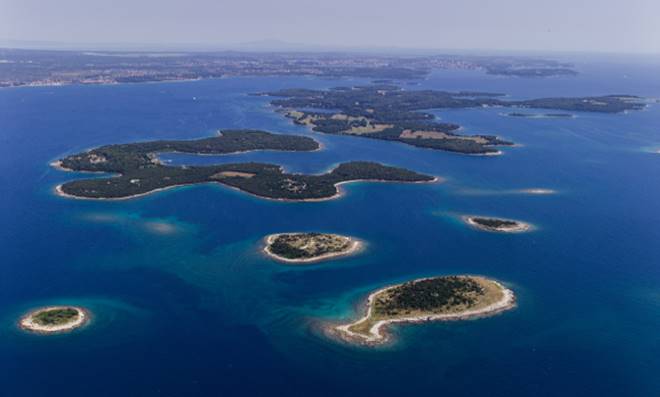
Islands do meet and collide from time to time, even merge. But it’s always temporary, like a night of passion. Union is not Pangea. It’s a romance.
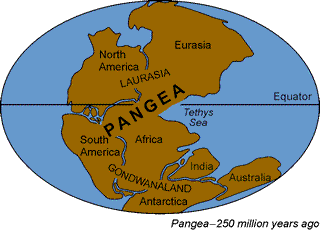
Why Utopians would ever want this state to reoccur is the central mystery of the death of consciousness on earth. Islands.

